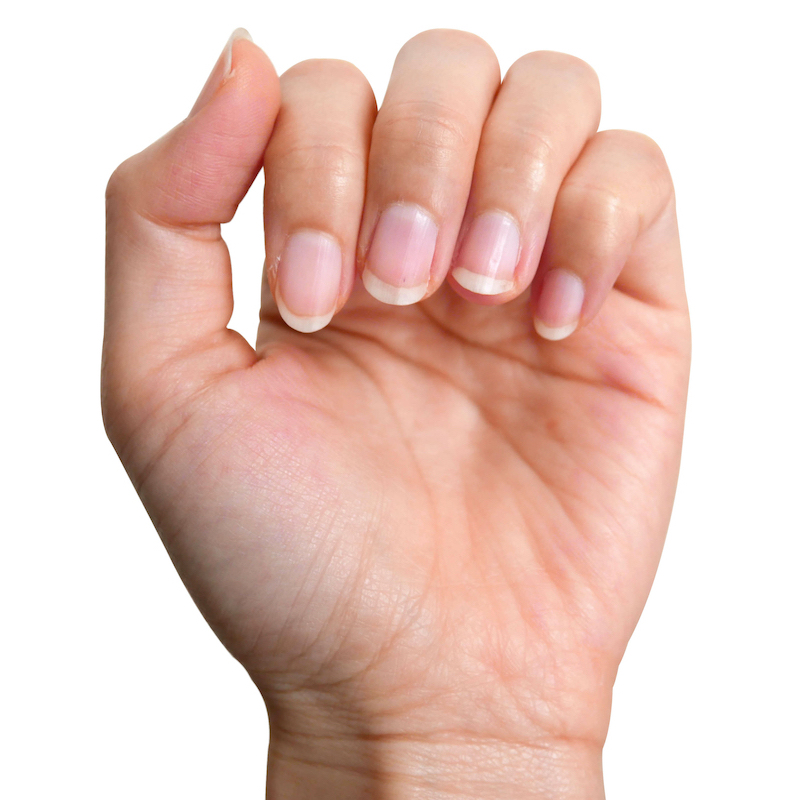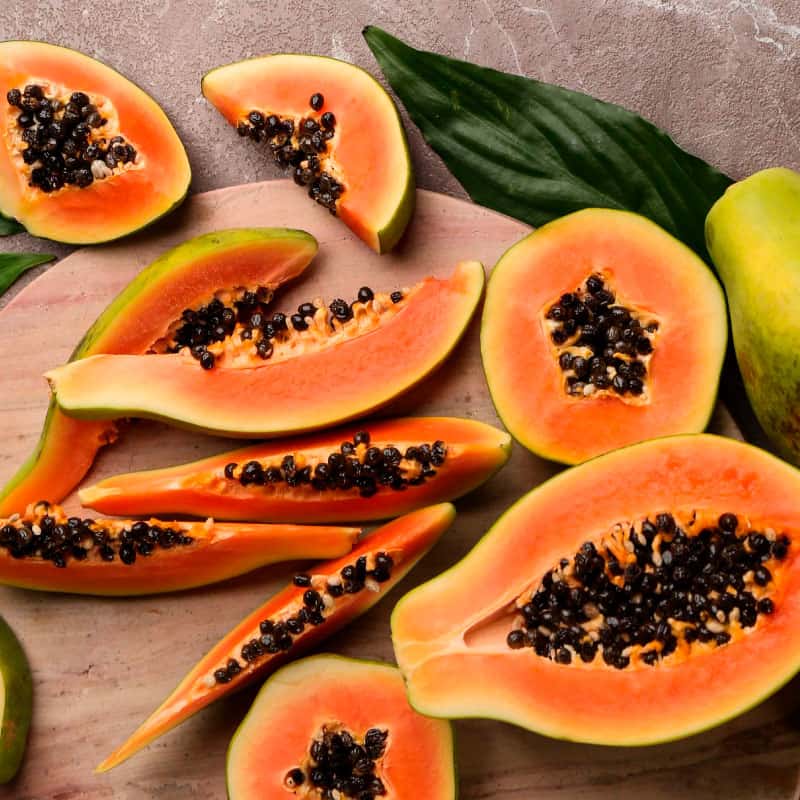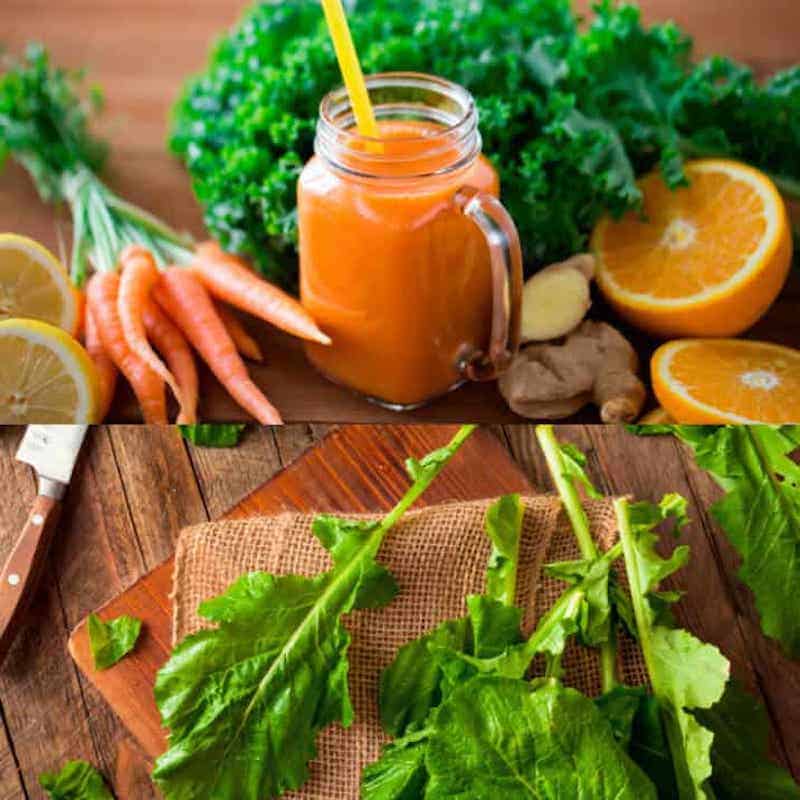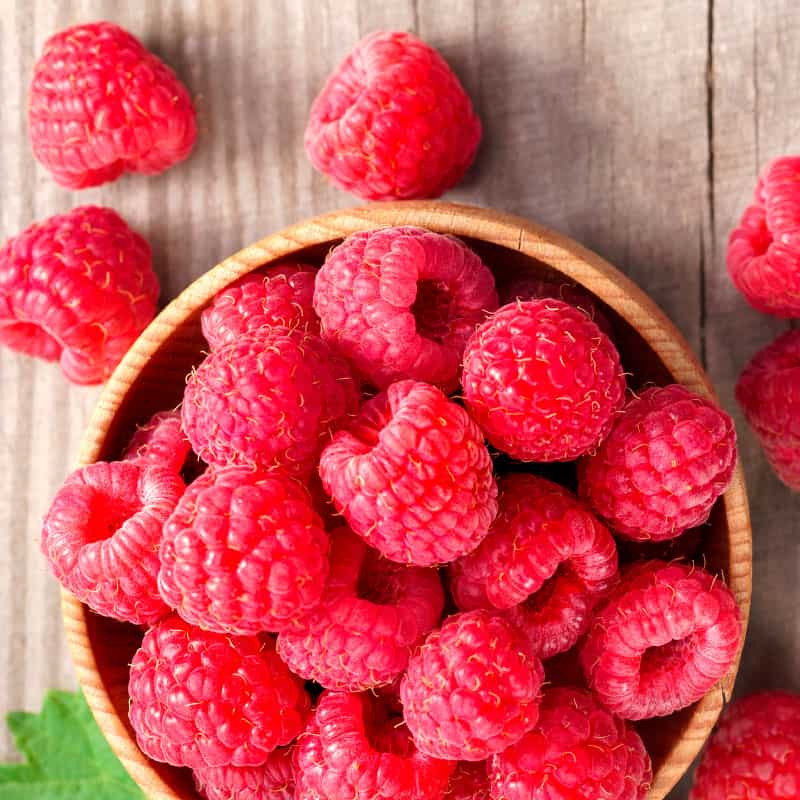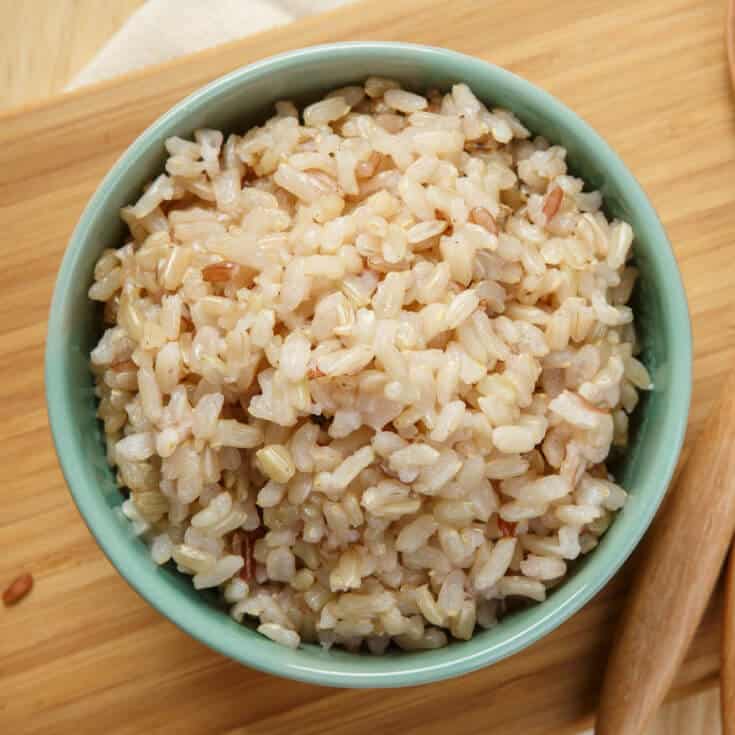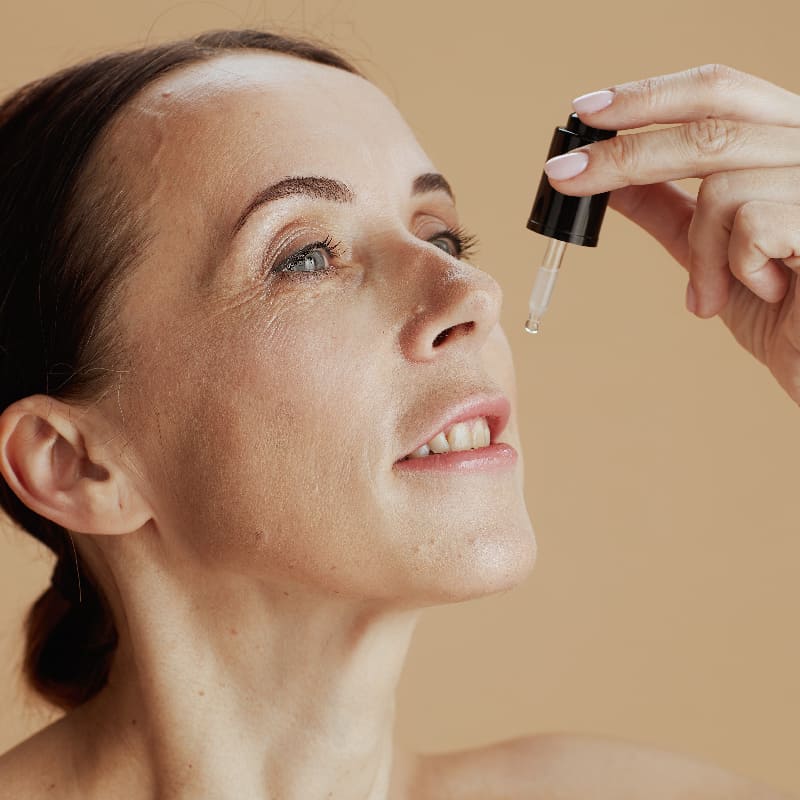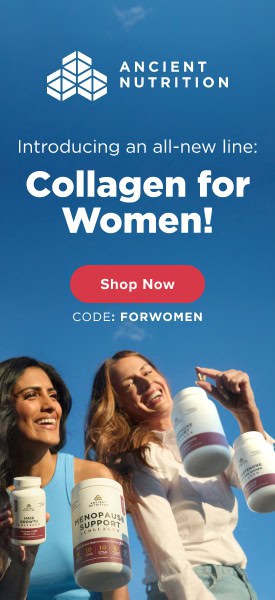This Dr. Axe content is medically reviewed or fact checked to ensure factually accurate information.
With strict editorial sourcing guidelines, we only link to academic research institutions, reputable media sites and, when research is available, medically peer-reviewed studies. Note that the numbers in parentheses (1, 2, etc.) are clickable links to these studies.
The information in our articles is NOT intended to replace a one-on-one relationship with a qualified health care professional and is not intended as medical advice.
This article is based on scientific evidence, written by experts and fact checked by our trained editorial staff. Note that the numbers in parentheses (1, 2, etc.) are clickable links to medically peer-reviewed studies.
Our team includes licensed nutritionists and dietitians, certified health education specialists, as well as certified strength and conditioning specialists, personal trainers and corrective exercise specialists. Our team aims to be not only thorough with its research, but also objective and unbiased.
The information in our articles is NOT intended to replace a one-on-one relationship with a qualified health care professional and is not intended as medical advice.
Lutein: the Antioxidant That Protects Your Eyes & Skin
March 21, 2023
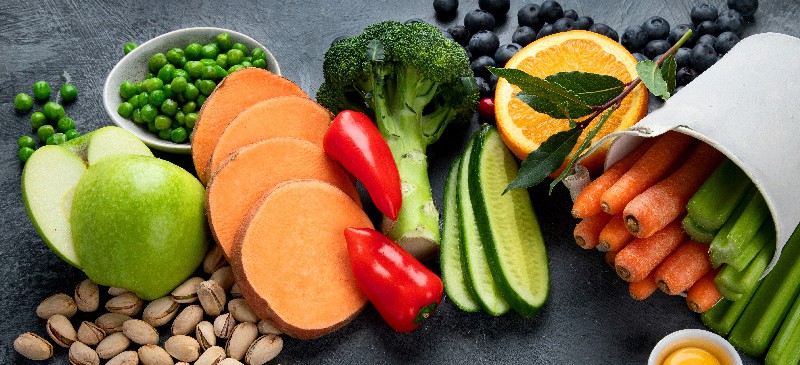
Nicknamed “the eye vitamin,” lutein is a type of carotenoid antioxidant that is most well-known for protecting eye health. In fact, eye vitamins with lutein are some of the best vitamins for macular degeneration
Ask yourself this question: How many colors are in your favorite foods? The answer will tell you how much lutein you’re getting. Just like many other types of antioxidants, it is found in brightly colored foods like fruits and vegetables — especially leafy greens and types that are deep orange or yellow.
Along with another vision-boosting carotenoid called zeaxanthin, it is abundant in anti-inflammatory, cancer-fighting foods including kale, broccoli and many other green vegetables, eggs yolks, and citrus fruits — all of which studies show help protect the eyes from oxidative stress.
The average person who eats the standard American diet is likely running low in this carotenoid, in addition to other important antioxidants. The human body cannot synthesize lutein or zeaxanthin on its own, which means we must obtain these important nutrients from our diets (or, in some cases, supplements). You already know that filling up on plenty of fruits and veggies is good for you, and here’s just another example of why that is.
Although it’s best to get enough of this antioxidant naturally through a healthy diet high in anti-inflammatory foods, nutritional supplements or fortified foods and beverages can also be used by some people in order to help increase levels. Are supplements really necessary to achieve benefits? Likely not, but overall we still have a way to go when it comes to understanding the full potential of lutein in terms of disease prevention, bioavailability, metabolism and dose-response relationships.
What Is Lutein?
Lutein and its relative zeaxanthin are pigments called carotenoids. They are related to other carotenoids, such as beta-carotene and lycopene.
When we eat foods high in lutein or take it in supplement form, it’s believed to be pretty easily transported around the body, especially to the parts of the eyes called the macula and the lens. In fact, there are more than 600 different types of carotenoids found in nature, but only about 20 make their way into the eyes. Of those 20, zeaxanthin and lutein are the only two that are deposited in high quantities into the macular portion of the eyes.
What does lutein do for your eyes?
- The antioxidant abilities of lutein help fight free radical damage caused by blue light or sun exposure, a poor diet, and other factors that increase the risk of developing age-related vision loss or disorders. These include problems like macular degeneration and cataracts.
- In the process, antioxidants like lutein protect healthy cells while halting the growth of malignant cells.
- Within the eyes, one of the most important functions of the lens is to collect and focus light on the retina. That is exactly why the lens needs to remain “clear” and free from the cloudiness that is indicative of cataracts. The major reason the lens becomes cloudy is damage due to oxidation. This is why we need antioxidants to help neutralize free radicals.
- Even in people who have existing eye damage, including plenty of lutein in their diets can help stop the condition from progressing and further damaging vision.
This eye vitamin isn’t just beneficial for older adults — taking preventative measures is the real key to preserving your vision and eye health. Both older and younger people should consume plenty of lutein in order to reduce the risk of oxidative damage that can lead to disorders down the road.
Although carotenoids are extremely important for vision and your eyes, their benefits don’t stop there. Aside from protecting eyes, lutein uses also include helping prevent skin disorders, several types of cancer including colon or breast cancer, type 2 diabetes, and risk factors associated with coronary heart disease.
Health Benefits
What is lutein good for? Here are some of the top benefits of antioxidants like this one:
1. Eye Health
What is the best eye vitamin for macular degeneration? Lutein is considered a natural treatment for macular degeneration symptoms (AMD), which is considered the most common cause of blindness among older adults. Estimates show that more than 25 million people worldwide are affected by age-related macular degeneration or cataracts, especially people aged 55 and older living in industrialized Western nations. Sadly, the incidence of AMD is expected to triple by 2025, according to the American Optometric Association.
Lutein protects the eyes by filtering out a percentage of damaging short-wavelength UV light that negatively affects delicate parts of the eyes, such as the retina (the macula). Researchers at Harvard University have found that supplementing with lutein daily can lower the risk for macular degeneration.
Similarly, other studies show that higher dietary intakes of zeaxanthin and lutein along with other natural antioxidants, including vitamin C, beta-carotene and vitamin E, are associated with a significantly decreased risk of cataract formation. While the research is still in its early stages, taking lutein three times weekly for up to two years has been shown to improve vision in older people who already have cataracts.
Other benefits of lutein for eye health include:
- helping reduce eye fatigue, glare and light sensitivity
- helping keep the lens and retina at appropriate densities
- strengthening eye tissue
- and helping vision be more acute
When it comes to eye health, every person is different in terms of how much lutein is most beneficial. It’s possible that for some people, even with a relatively high intake of high-antioxidant foods, their blood levels might be high enough in nutrients like lutein, but testing tissues within their eyes will show that their retinal levels still remain too low. Luckily, doctors now have the ability to measure macular pigment levels of lutein in someone’s eyes in order to determine if that person is at an increased risk for disease. By performing a macular pigment optical density test (MPOD), doctors can better give specialized dietary recommendations for protective nutrients based on individual responses, genetic predisposition and lifestyle factors.
2. Helps Protect Skin Health
In addition to being found within the pigments of our eyes, carotenoids are also present within the skin. To preserve skin health and fight skin cancer, lutein helps filter high-energy wavelengths of visible light, which slows down the rate of oxidative stress. Some animal studies show evidence that lutein offers significant protection against light-induced skin damage, such as signs of aging and potentially skin cancer.
3. Can Help Lower Diabetes Risk
According to some animal studies, higher levels of carotenoids within the blood are linked with fewer problems controlling blood sugar and a lower risk for diabetes or related complications. A 2009 study conducted on diabetic rats found that supplementing with lutein and DHA (a crucial type of omega-3 fatty acid) helped normalize all diabetes-induced biochemical modifications.
Compared to the control group, diabetic rats taking the supplements experienced lower oxidative stress rates and less damage done to the retina of the eyes, despite being under hyperglycemic conditions.
4. Might Help Lower Risk of Cancer
Some evidence shows that people who obtain more lutein from their diets experience lower rates of breast, colon, cervical and lung cancers. While we don’t know exactly how lutein and cancer formation is tied just yet, correlational studies have shown that adults with higher levels of lutein in the blood experience a reduced risk of developing several forms of common cancers. This includes a 2018 study in which researchers concluded: “Dietary lutein supplementation may be a promising alternative and/or adjunct therapeutic candidate against breast cancer.”
Lutein may act as a natural cancer treatment because of the fact that foods rich in lutein (like leafy greens and citrus fruits) also provide other beneficial antioxidants and nutrients that lower disease-causing inflammation and oxidative stress. However, at this time, more research is still needed to help us fully understand the effects of carotenoids on cancer, along with immune, hormonal and cardiovascular health, independent of other nutrients that are found in fruits and vegetables.
5. Can Help Maintain Heart Health
Some observational studies show that xanthophyll carotenoids, including lutein, can help reduce the risk of developing heart disease and stroke. Just like with the previously mentioned studies that show potential cancer-protective effects of this carotenoid, we aren’t exactly sure yet how it improves heart health. Because it has anti-inflammatory and antioxidant properties, it seems that it would benefit heart health by lowering inflammation, which is an underlying cause of coronary heart disease.
Studies done by the University of Southern California suggest that low levels of lutein within the blood might contribute to the thickening of artery walls. This raises the risk for arteriosclerosis development and clogging of the carotid arteries that can lead to heart attacks. USC’s observational studies show that people with the highest levels of lutein in the blood experience less plaque buildup in the arteries, while the opposite is also true: The fewer lutein-rich plant foods someone eats, the more clogged their arteries seem to become.
Another convincing factor is that after the researchers tested effects of the carotenoid on human arteries that were removed during surgery, fewer white cells were present within the arteries after lutein supplementation compared to controls, suggesting that less inflammation and clogging occurred.
Foods
What vegetables and what fruits are high in lutein? According to the American Macular Degeneration Association, the following foods are the best sources of lutein for increasing your intake naturally (not to mention for getting other antioxidants, vitamins and minerals too):
- Kale — 1 cup raw: 22 milligrams
- Turnip Greens — 1/2 cup cooked: 9 milligrams
- Collard Greens — 1/2 cup cooked: 8.7 milligrams
- Spinach — 1 cup raw: 6.7 milligrams
- Broccoli — 1 cup cooked: 3.3 milligrams
- Brussels Sprouts — 1 cup cooked: 2 milligrams
- Corn — 1 cup cooked: 1.4 milligrams
- Green Beans — 1 cup: 0.8 milligrams
- Eggs — 2 whole: 0.3 milligrams
- Orange — 1 medium: 0.2 milligrams
- Papaya — 1 medium: 0.2 milligrams
Lutein and zeaxanthin foods are important macular degeneration vitamins. That’s why lutein in eggs, for example, can contribute to macular degeneration prevention, along with taking these eye supplements for further protection.
Supplement Dosage and RDA
How Much Lutein Should I Take Daily?
At this time there isn’t a general recommendation for daily intake of lutein or zeaxanthin. However, most studies show that benefits are greatest when someone consumes 10 milligrams of lutein per day or more (along with about two milligrams of zeaxanthin per day).
The recommended lutein dosage for preventing oxidative damage and lowering symptoms of eye or skin disorders is between 6 milligrams and 30 milligrams daily for adults, according to the American Macular Degeneration Association.
This amount can be obtained pretty easily by eating a healthy and healing diet (one cup of kale has more than 22 milligrams), but supplements are also recommended for people who are highly susceptible to eye damage, those who have digestive disorders that can hinder nutrient absorption and the elderly, who could use more protection.
People who don’t eat many vegetable or fruits can probably benefit from supplementing with higher doses, as can older adults, smokers and post-menopausal women.
Types of Lutein Supplements
- You can find lutein supplements in soft-gel capsule form in health food stores and online.
- It’s recommended that you take lutein supplements along with meals because this carotenoid acts like a fat-soluble nutrient and is absorbed better when eaten with omega-3 foods.
- The same goes for eating foods that naturally contain this carotenoid — try pairing things like squash, carrots or eggs with healthy sources of fats, including nuts, coconut, olive oil or avocado, to boost their effectiveness.
- Make sure to read lutein and zeaxanthin supplements review ratings to ensure you get the best antioxidant eye health supplements.
Want to increase your intake of this beneficial antioxidant? Start by eating more lutein-rich, brightly colored fruits, veggies and pasture-raised eggs.
Risks and Side Effects
What are the side effects of taking lutein? Lutein appears to be nontoxic and safe for consumption in moderate or even relatively high doses. Lutein supplements have been used safely by adults in doses up to 15 to 20 milligrams daily for as long as two years without any serious side effects. That said, possible lutein and zeaxanthin side effects can include harmless yellowing of the skin called carotenemia and an upset stomach/vomiting if you take too much.
There aren’t any known special precautions for women who are pregnant or breastfeeding, but it’s always a good idea to speak with your doctor when pregnant before beginning new supplemental treatments.
Keep in mind that as with other antioxidants, people seem to differ in terms of how capable their bodies are of absorbing lutein. Some might have a harder time utilizing it and other antioxidants from foods and transporting to tissues within the eyes or other organs. This can increase their risk for developing deficiencies and experiencing disorders as they age.
For people with a genetic predisposition to eye disorders or cancer, taking more lutein might be necessary. As another example, one group of people who can usually afford to take more is those with cystic fibrosis. It seems that people with this disorder might not absorb some carotenoids from food very well and often show low blood levels of lutein. If you suspect you might benefit from high doses of lutein, it’s best to speak with your doctor to rule out any potential contraindications.
Final Thoughts
- Lutein has earned the nickname “the eye vitamin because it’s well-known for protecting eye health. Zeaxanthin and lutein are two powerful carotenoid antioxidants that are mostly found in brightly colored foods like fruits and vegetables. Together they can help to preserve vision by protecting the eyes from oxidative stress and UV light damage.
- Lutein uses and benefits include helping prevent eye conditions like macular degeneration and cataracts, skin disorders and skin cancer, several types of cancer, including colon or breast cancer, type 2 diabetes, and heart disease.
- Some of the top lutein-rich foods to include in your diet are dark leafy greens like spinach and kale, broccoli, Brussels sprouts, eggs, oranges, and papaya.
- This carotenoid is obtained from both foods and supplements, which are generally considered safe. When taken in high doses, potential lutein side effects can include harmless yellowing of the skin called carotenemia or vomiting, although these are rare.



